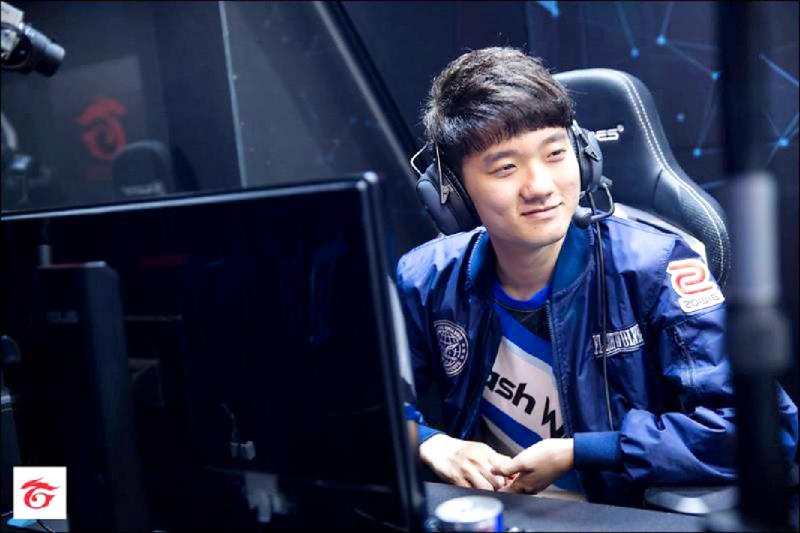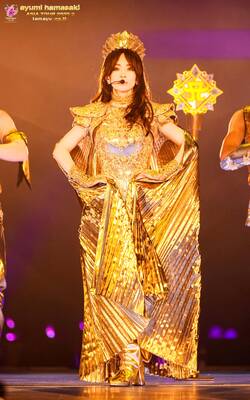Children who play video games won’t turn out bad and may even attain fame and fortune through the virtual world. Hu Shuo-chieh, who goes by the name of “SwordArt,” has signed a record-breaking US$6 million (approximately NT$173 million) contract. Hu’s salary is believed to be higher than the previous record held by a League of Legends championship player. Born in Taiwan, Hu is only 23 years old.
According to reporting by the Washington Post, US-based professional esports organization Team SoloMid (TSM) has shelled out an unprecedented amount of money to sign Taiwan’s top League of Legends player onto a two-year contract that will pay Hu US$3 million each year. The signing surpasses the previous record-high salary of US$2.3 million over two years, netted by South Korean gamer Heo “Huni” Seung-hoon.
Two years ago, Hu joined China’s Suning professional esports organization and this year made it to the finals of the League of Legends Pro League in China, but lost to South Korea’s DWG by 3-to-1. However, Hu’s potential caught the attention of TSM’s Vietnamese-American founder Andy Dinh, who says he sees the US$6 million contract as “a really small investment a decade down the road.”

Photo: screengrab from the Internet 照片:取自網路
Hu’s phenomenal rise to become the highest paid League of Legends gamer in the world is a story of dogged perseverance and hard graft. Hu was born into a low-income family and his father left home when he was only three years old. All he had to rely on was his mother, who worked her socks off to raise Hu and his sister, all on her own.
Hu’s first contact with League of Legends was during junior-high school. He and his friends formed an amateur team and soon began to make a name for themselves. The team then started to compete professionally and Hu became so absorbed in gaming that he would neglect sleep and meals. Hu’s mother naturally became worried and his gaming became a frequent point of friction between the two, placing a strain on their relationship. However, things improved after Hu’s mother saw that her son was not only achieving success, but also hadn’t “gone bad.” Hu’s annual salary broke through the NT$1 million mark and he was able to use his earnings to subsidize the family’s outgoings. Hu’s mother was finally able to understand and accept her son’s unfamiliar line of work, and she is now his number one fan.
(Liberty Times, translated by Edward Jones)
打電動的小孩不會變壞,甚至還能透過虛擬世界名利雙收!來自單親家庭的「蛇蛇」胡碩傑(SwordArt),已獲六百萬美元(約一.七三億台幣)的史上最大合約,一舉打破北美LCS聯盟紀錄,這名土生土長的台灣囝仔,不過年僅二十三歲。
華盛頓郵報指出,北美電競聯盟知名戰隊TSM相中台灣「英雄聯盟」高手胡碩傑,不惜祭出空前重金,這份保障合約將支付他明、後年各三百萬美元,大幅超越南韓許勝勳(Huni)先前簽下兩年兩百三十萬美元紀錄。
胡碩傑前年加盟中國蘇寧電競俱樂部,今年以中國LPL賽區第三種子,殺入英雄聯盟世界大賽總決賽,儘管一比三不敵南韓強敵DWG,潛力仍獲TSM美籍越裔創辦人丁安迪青睞,「六百萬美元不過是十年內一筆很小投資。」
躍居北美LCS聯盟最高身價,胡碩傑靠的是永不放棄的堅持與努力。他從小家境辛苦,父親自他三歲出走,只能靠上班族母親含辛茹苦,獨自扶養兄妹長大。
胡碩傑國中接觸英雄聯盟,與好友組業餘戰隊,很快打響名號,跨入職業電競,但媽媽難以接受兒子每天廢寢忘食打電動,經常發生摩擦關係緊張,直到他迭創佳績也沒變壞,甚至年薪破百萬貼補家用,才逐漸理解並接受這陌生領域,甚至變成頭號粉絲。
(自由時報梁偉銘)

A: Apart from the musical Sunset Boulevard, Japanese pop diva Ayumi Hamasaki is also touring Taiwan after a 17-year wait. She’s holding two concerts starting tonight. B: Ayu has the most No. 1 hits of any Japanese solo artist, with 33 total. A: “Time” magazine even crowned her as “The Empress of Pop.” B: She staged shows in Taipei back in 2007 and 2008, causing an “Ayu fever” across Taiwan. A: Unfortunately, the singer has been deaf in her left ear since 2008, and is gradually losing hearing in her right ear. I’m so excited to see her singing in Taipei again. A: 除了音樂劇《日落大道》,日本歌后濱崎步睽違17年,今晚起在台北熱唱兩場。

Alan Turing, celebrated as the “father of computer science,” was a brilliant mathematician and scientist. Born in London in 1912, Turing showed exceptional talent in mathematics and science from a young age. At 16, he understood Albert Einstein’s work without difficulty. This intelligence carried him through studies at Cambridge University and later at Princeton University in the US, where he further explored complex mathematical theories. In 1936, Turing introduced the concept of the Turing machine, a theoretical device for solving mathematical problems. He described it as having an infinite tape on which symbols could be read, interpreted, and modified. With simple

Denmark’s state-run postal service, PostNord, announced that it would cease letter deliveries at the end of 2025 due to the impact of digitalization. As 95% of its residents now use the Digital Post service, Denmark has seen a 90% decline in letter volumes since 2000, from 1.4 billion to 110 million last year. On top of that, the Postal Act of 2024 removes the government’s obligation to provide universal mail service and puts an end to postal exemptions from value-added tax, raising the cost of a single letter to 29 Danish krone (US$4.20). As a result, PostNord is switching

A: After touring Taipei, the play Life of Pi is now heading to Taichung. You wanna go? B: Did you forget? We’re going to Taipei this weekend to see the musical Sunset Boulevard and go to Japanese pop diva Ayumi Hamasaki’s concert. A: Oh yeah, that’s right. The classic composed by Andrew Lloyd Webber is touring Taiwan for the first time. B: I heard that it’s adapted from a 1950 film with the same title. A: And the show will feature legendary soprano Sarah Brightman, who is finally returning to the musical stage after 30 years. We can’t miss it. A: 在台北巡演後,戲劇《少年Pi的奇幻漂流》本週起將移師台中。要去嗎?